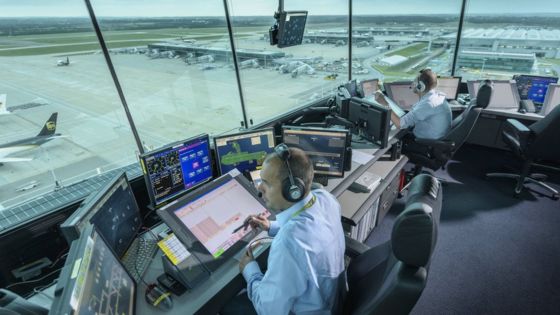
Research by NATS has shown that delays are set to rise from around 90,000 minutes a year today to 4 million by 2030 unless the UK’s ageing network of airspace structures and flight paths is redesigned to make use of modern aircraft technology.
The Sky’s the Limit group is also highlighting that significant environmental benefits are being missed as aircraft are forced to fly longer and further than necessary because of the failure of successive governments to commit to airspace modernisation.
The Sky’s the Limit group is calling on the government and politicians to support the changes that it describes as urgent and necessary.
Without redesigning the UK’s network of flight paths and airways, it is feared that it simply won’t cope with the growth in traffic forecast over the coming years, with 3.1 million flights a year expected in the UK by 2030, up from 2 million flights in 2015.
Martin Rolfe, NATS Chief Executive Officer said that much of the UK’s controlled airspace – the invisible motorways in the sky where commercial aircraft fly – was designed in the 1960 and 1970s for a different era of aircraft and when traffic was less than half of what it is today.
The environmental benefits of airspace modernisation are considerable, with aircraft able to fly more directly with routes that can be designed to avoid noise sensitive areas or provide a more equitable spread of noise. These more direct routes will reduce fuel consumption and lower CO2 emissions, lessening aviation’s impact on the climate and local air quality.
Modernisation would allow for the greater use of smooth continuous descent and climb operations, meaning aircraft spend less time at low levels where they are not as efficient and create more noise. It would also reduce the need for conventional orbital holding, which again would keep aircraft higher for longer.
News source and image courtesy: NATS